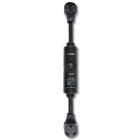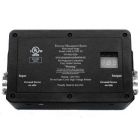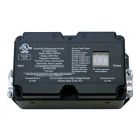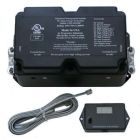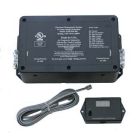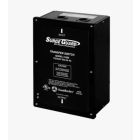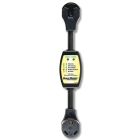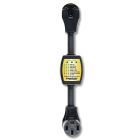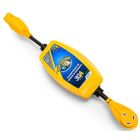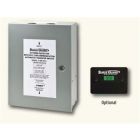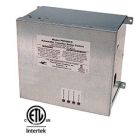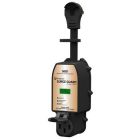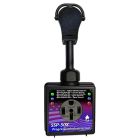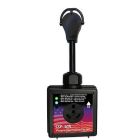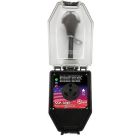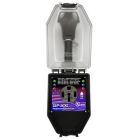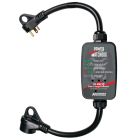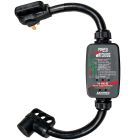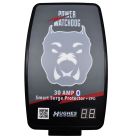Choosing the Right Style of RV Surge Guard: A Guide to Portable vs. Hardwired Surge Guards
-

- Electrical
- Nov 15, 2023
-
929views
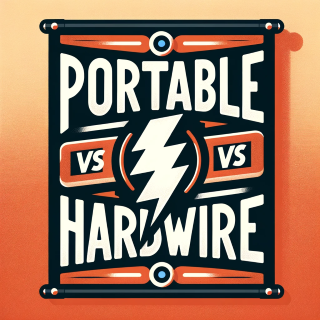
Introduction
Welcome to our in-depth exploration of RV surge protectors! As an RV enthusiast, you know that safeguarding your camper from electrical hazards is crucial. In my last article, I explained why purchasing a surge guard or electrical management system is a good idea. Today, we're diving into the world of RV surge protectors again, comparing portable and hardwired options to help you make the best choice. First, I am going to explain the differences between the two options. Second, I will give my recommendation.
Hardwired RV Surge Protectors
Hardwired surge protectors are integrated directly into your RV’s electrical system. Typically, they require professional installation unless you are handy with electrical wiring, ensuring optimal protection for sensitive equipment. They can be installed before or after the transfer switch, though usually it's before the transfer switch. These units automatically analyze incoming power for issues like open ground or high/low voltage, only allowing safe power into your RV. They also feature reset functions to restore power after resolving faults, often including a delay to protect AC compressors.
Many hardwired protectors come with displays for easy monitoring of potential faults. Some models offer additional internal displays for convenient inside-the-RV monitoring. Not only do they protect against external electrical issues, but they also guard against faults in the RV's shore power cord. Their placement inside the RV shields them from environmental wear and tear, enhancing their longevity. It also makes it harder for someone with sticky hands to steal it! Some of your hardwired units have components that are replaceable should something go bad inside.
Portable RV Surge Protectors
The biggest advantage of portable surge protectors is that they offer the convenience of plug-and-play, requiring no installation. Ideal for testing power pedestals before settling at a campsite, they're also easy to install and remove - perfect for RVers who frequently switch vehicles. Despite their convenience, they're more prone to theft and accidental loss; however, some come with locking mechanisms, and instances of theft are relatively rare.
Some portable models, like the Surge Guard 34931 and 34951, offer advanced features such as line side and load side protection - a benefit not found in hardwired units. This technology is crucial for protecting against internal RV electrical issues and external faults. Additionally, these units are designed to endure outdoor conditions, with some models equipped with features to prevent plug overheating.
Making the Choice
The decision between portable and hardwired RV surge protectors boils down to balancing security, features and flexibility. Hardwired units offer better security and longevity but lack the versatility of portable units. On the other hand, portable protectors are more flexible and easier to use but come with increased risks of theft and accidental loss. They also won't detect an issue with your cord.
Consider the ease of installation and maintenance. Portable units are simpler to handle and transfer between RVs, while hardwired units, though requiring professional installation, provide robust, long-term protection. Also, assess the level of protection you need. For more comprehensive protection, especially in high-end RVs, a hardwired unit is advisable.
My Recommendation
I get asked this question a lot. "Ryan, which version should I purchase?" The first question I will ask a customer is, do you boondock or dry camp mostly, or do you primarily go to parks and campgrounds?
If you primarily boondock and only occasionally go to a campground or park, then a portable is probably a good choice, as you wont use it that much. Having it professionally installed comes at a price and if you're only occasionally using it, then going portable can save you some coin. Even if you install it yourself, which if you are handy it's not hard, you're still looking at probably 1-2 hours. A portable unit does take time to hook up and unhook, but you can install and uninstall a portable unit a lot before you will recoup your time investment on installation.
On the other hand, if you primarily go to campgrounds or parks, then I recommend a hardwire. You don't have to remember to hook it up, It's one less thing to setup and tear down, and its not taking up space in your storage bay. It's just there doing its thing. You don't have to think about it. It will also detect a problem with your cord. I recommend installing it before the transfer switch as your generator most likely already has some built in protection from spitting out bad power. If you install after the transfer switch, then bad campground power could fry your transfer switch and now you have to try and source a part and get it installed. Which depending on your location, could be difficult to do.
That said, what did I go with on my 5th wheel. I went with the Progressive Industries 50 Amp Permanent Electrical Management System with Remote Display. Even though I mostly dry camp, probably 60% dry and 40% campgrounds now a days, but used to be 95% dry camp, I still went a hardwire. I didn't want a portable unit taking up room in my storage bay. I could install the hardwire behind the storage bay wall with a remote pendant inside the camper. I am all about making camping as easy as possible. So not having one more step on setup and tear down lessens the anxiety. I don't have to think about it. It was worth the 2 hours I spent installing it.
Pro Tip: If you choose hardwired, chances are you will have to purchase a small length of wire to install it. Don't get Romex like it did, use a flexible cord like an SO cord. If its going to be exposed in your bay, then using THHN with flexible conduit would be a good choice. Wrestling that romex was not fun, especially since I was all contorted inside my bay. My neighbors still laugh at the noises, words and objects coming out of that bay :)


Related Posts





